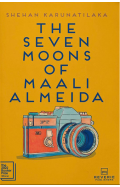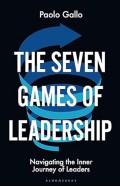Time Travel
By: James Gleick
-
Rs 1,865.75
- Rs 2,195.00
- 15%
You save Rs 329.25.
Due to constant currency fluctuation, prices are subject to change with or without notice.
From the acclaimed author of The Information and Chaos, a mind-bending exploration of time travel: its subversive origins, its evolution in literature and science, and its influence on our understanding of time itself.
Gleick's story begins at the turn of the twentieth century with the young H. G. Wells writing and rewriting the fantastic tale that became his first book, an international sensation, The Time Machine. A host of forces were converging to transmute the human understanding of time, some philosophical and some technological ― the electric telegraph, the steam railroad, the discovery of buried civilisations, and the perfection of clocks. Gleick tracks the evolution of time travel as an idea in the culture ― from Marcel Proust to Doctor Who, from Woody Allen to Jorge Luis Borges. He explores the inevitable looping paradoxes and examines the porous boundary between pulp fiction and modern physics. Finally, he delves into a temporal shift that is unsettling our own moment: the instantaneous wired world, with its all-consuming present and vanishing future.
From the acclaimed author of The Information and Chaos, a mind-bending exploration of time travel: its subversive origins, its evolution in literature and science, and its influence on our understanding of time itself.
Gleick's story begins at the turn of the twentieth century with the young H. G. Wells writing and rewriting the fantastic tale that became his first book, an international sensation, The Time Machine. A host of forces were converging to transmute the human understanding of time, some philosophical and some technological ― the electric telegraph, the steam railroad, the discovery of buried civilisations, and the perfection of clocks. Gleick tracks the evolution of time travel as an idea in the culture ― from Marcel Proust to Doctor Who, from Woody Allen to Jorge Luis Borges. He explores the inevitable looping paradoxes and examines the porous boundary between pulp fiction and modern physics. Finally, he delves into a temporal shift that is unsettling our own moment: the instantaneous wired world, with its all-consuming present and vanishing future.
Zubin Mehta: A Musical Journey (An Authorized Biography)
By: VOID - Bakhtiar K. Dadabhoy
Rs 892.50 Rs 1,050.00 Ex Tax :Rs 892.50
Is Pluto a Planet?: A Historical Journey through the Solar System
By: David A. Weintraub
Rs 6,115.75 Rs 7,195.00 Ex Tax :Rs 6,115.75
Beyond UFOs: The Search for Extraterrestrial Life and Its Astonishing Implications for Our Future
By: Jeffrey Bennett
Rs 4,797.50 Rs 9,595.00 Ex Tax :Rs 4,797.50
The Islamist Why I Became an Islamic Fundamentalist What I Saw Inside and Why I Left
By: Ed Husain
Rs 510.00 Rs 600.00 Ex Tax :Rs 510.00
The Demon Haunted World Science As A Candle In The Dark
By: Carl Sagan
Rs 3,595.50 Rs 3,995.00 Ex Tax :Rs 3,595.50
The Last Boyfriend: Number 2 in series: 2/3 (Inn at Boonsboro Trilogy)
By: Nora Roberts
Rs 1,355.75 Rs 1,595.00 Ex Tax :Rs 1,355.75
Patterned Satin Journal (Thunder Bay Journals)
By: Editors of Thunder Bay Press
Rs 1,695.75 Rs 1,995.00 Ex Tax :Rs 1,695.75
Mudpuppy Transportation 4-in-a-Box Puzzle Set
By: Mudpuppy
Rs 3,775.50 Rs 4,195.00 Ex Tax :Rs 3,775.50
Chicken Soup for the Soul: Believe in Miracles
By: Amy Newmark
Rs 3,225.75 Rs 3,795.00 Ex Tax :Rs 3,225.75
All in the Family - The Trumps and How We Got This Way
By: Fred C. Trump III
Rs 6,385.50 Rs 7,095.00 Ex Tax :Rs 6,385.50
Drive The must read addictive love story and viral sensation Bittersweet Symphony Duet 1
By: Kate Stewart
Rs 2,495.00 Ex Tax :Rs 2,495.00
The Western Front: A History of the First World War
By: Nick Lloyd
Rs 3,145.50 Rs 3,495.00 Ex Tax :Rs 3,145.50
The Secret War in Afghanistan: The Soviet Union China and AngloAmerican Intelligence in the Afghan War Library of Middle East History
By: Panagiotis Dimitrakis
Rs 3,395.75 Rs 3,995.00 Ex Tax :Rs 3,395.75
All Her Fault: The breathlessly twisty Sunday Times bestseller everyone is talking about
By: Andrea Mara
Rs 1,780.75 Rs 2,095.00 Ex Tax :Rs 1,780.75
Threads of Life: A History of the World Through the Eye of a Needle
By: Clare Hunter
Rs 1,197.50 Rs 2,395.00 Ex Tax :Rs 1,197.50
The Sood Family Cookbook 101 Recipes for Every Home
By: Raghuram G. Rajan
Rs 5,095.75 Rs 5,995.00 Ex Tax :Rs 5,095.75
The Seven Moons of Maali Almeida
By: Shehan Karunatilaka
Rs 2,160.00 Rs 2,400.00 Ex Tax :Rs 2,160.00
The Seven Games of Leadership - Navigating the Inner Journey of Leaders
By: Paolo Gallo
Rs 3,865.50 Rs 4,295.00 Ex Tax :Rs 3,865.50
The Feel Good Home - A Practical Guide to Conscious Living
By: Marion Hellweg
Rs 8,095.50 Rs 8,995.00 Ex Tax :Rs 8,095.50
A Fatal Grace - (a Chief Inspector Gamache Mystery Book 2)
By: Louise Penny
Rs 2,245.50 Rs 2,495.00 Ex Tax :Rs 2,245.50
Before I Do - The New, Funny and Unexpected Love Story from the Author of THIS TIME NEXT YEAR
By: Sophie Cousens
Rs 1,355.75 Rs 1,595.00 Ex Tax :Rs 1,355.75
The Selected Works of Edgar Allan Poe (Collins Classics)
By: Edgar Allan Poe
Rs 1,795.50 Rs 1,995.00 Ex Tax :Rs 1,795.50
Khana Badosh (Deluxe Edition)
By: Mustansar Hussain Tarar
Rs 3,400.00 Rs 4,000.00 Ex Tax :Rs 3,400.00
Zubin Mehta: A Musical Journey (An Authorized Biography)
By: VOID - Bakhtiar K. Dadabhoy
Rs 892.50 Rs 1,050.00 Ex Tax :Rs 892.50














-120x187.jpg?q6)







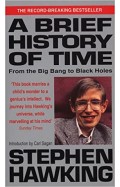
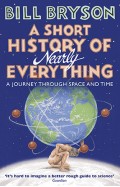
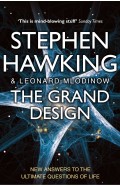

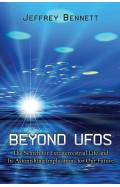
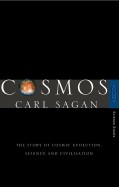

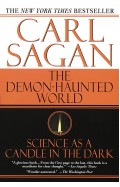








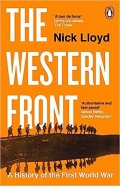


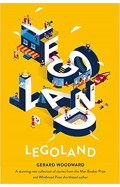

-120x187.jpg?q6)






